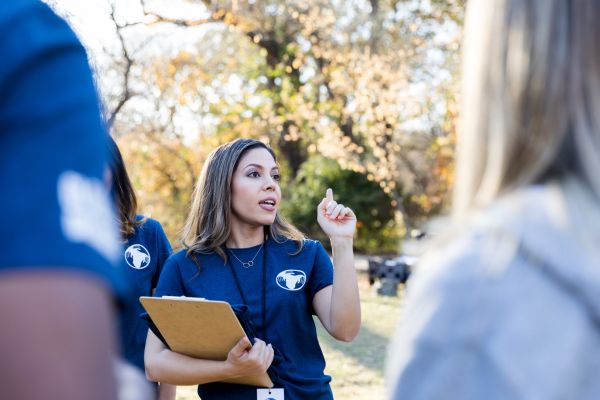Your wedding day is one of the most anticipated and cherished moments of your life. It’s a beautiful culmination of love, planning, and dreams coming to life. But even with the most meticulous preparation, the day itself can be chaotic if not properly coordinated. That’s where mastering wedding day coordination tips becomes absolutely essential. By understanding how to manage the flow of events, delegate responsibilities effectively, and keep everything running seamlessly, you ensure that your special day remains stress-free and magical.
Why Wedding Day Coordination Is the Key to Success
Behind every flawless wedding lies thoughtful coordination. While months of planning go into selecting venues, designing floral arrangements, and finalizing guest lists, the real challenge often lies in ensuring everything comes together on the big day. This is where wedding day coordination tips make a significant impact. The goal isn’t to control every minute, but rather to create a framework that allows for flexibility without compromising the experience.
Wedding day coordination is about setting timelines, anticipating challenges, and enabling others to support your vision. Whether you’re working with a professional coordinator or managing things yourself, having a strategy in place is vital to keeping everything on track.
Understanding the Flow of the Day
Every wedding has a rhythm, and understanding that rhythm is crucial for coordination. From the early morning preparations to the final dance, each part of the day plays a role in the overall experience. By familiarizing yourself with the timeline, you can identify where extra attention is needed and plan accordingly. For instance, hair and makeup sessions can easily run long if not managed well, delaying the entire day. Keeping the ceremony start time in mind helps guide preparations, ensuring everyone is ready on schedule.
Another important factor is accounting for transition times. Moving from the ceremony to the reception or coordinating group photos can be time-consuming if not thought through in advance. These are the moments where smart wedding day coordination tips really shine, making the difference between a rushed experience and a smooth celebration.
Communicating Roles and Responsibilities
A major component of effective coordination is clear communication. Everyone involved, from the wedding party to vendors, needs to know where they’re supposed to be and when. Having a central point of contact—often the coordinator, maid of honor, or a trusted friend—helps streamline this process. This person should be well-versed in the day’s itinerary and prepared to handle any last-minute questions or concerns.
Vendors, in particular, benefit from a unified plan. Sharing the timeline with photographers, caterers, DJs, and florists allows them to align their services with the broader vision. When each vendor understands their role and the flow of events, they’re more likely to deliver a seamless performance.
Preparing for the Unexpected
Even the most detailed plans can face unexpected challenges. Weather, traffic, or a missing item can create stress if there’s no backup plan in place. One of the most valuable wedding day coordination tips is to anticipate these hurdles. Having an emergency kit with items like safety pins, extra makeup, and stain remover can be a lifesaver. Similarly, building a few buffer minutes into the timeline provides breathing room for any small delays.
It’s also wise to have a rain plan if your event includes outdoor elements. Coordinating with your venue about alternate indoor arrangements or tents ensures that your celebration can continue uninterrupted, regardless of the forecast. Preparation empowers you to remain calm and enjoy the day as it unfolds.
Creating a Detailed Timeline
A comprehensive timeline serves as the foundation for smooth coordination. It should include every important activity, from the bride’s makeup schedule to the couple’s grand exit. Incorporating details such as when transportation arrives, when speeches begin, and when the cake is cut helps everyone stay informed and aligned.
When drafting your timeline, it’s helpful to think from the perspective of each participant. The more tailored your plan is to each individual’s role, the more seamless their experience will be. Keeping a copy of the timeline handy for key participants ensures that no one is left guessing about what’s next.
Building Strong Vendor Relationships
Another key element in successful wedding day coordination is cultivating strong relationships with your vendors. When you treat your vendors as partners rather than service providers, they are more likely to go above and beyond to make your day exceptional. Being responsive, respectful, and communicative throughout the planning process sets the stage for a collaborative and productive experience.
Confirm all final details with your vendors in the week leading up to the wedding. Reiterate expectations, double-check times and locations, and ensure they know who to contact in case of an emergency. This simple but often overlooked step helps avoid confusion and gives you peace of mind.
Embracing the Moment with Confidence
Once the day arrives, your focus should shift from planning to presence. This is the time to trust the process, the people you’ve assigned, and the plans you’ve made. One of the most overlooked wedding day coordination tips is to let go. You’ve done the work, communicated the details, and created a structure—now allow yourself to live in the moment.
When minor hiccups arise, and they likely will, your mindset is what will determine the outcome. Embrace the imperfections with grace and humor. Often, the most memorable and beautiful moments are the ones that weren’t planned.
The Role of a Professional Coordinator
For many couples, hiring a professional day-of coordinator is one of the best decisions they make. These experts specialize in executing your plans and troubleshooting any issues that arise. A seasoned coordinator can act as the glue that holds all the pieces together, ensuring that vendors are in sync and the timeline is followed without requiring your involvement.
If a coordinator isn’t in the budget, consider designating a reliable and organized friend or family member to take on the role. With access to your plans and a clear understanding of your vision, this person can help bring everything to life while allowing you to remain focused on enjoying your day.
Final Thoughts: A Celebration Worth Remembering
When it comes to pulling off a wedding that feels as joyful as it looks, preparation is key. Mastering essential wedding day coordination tips allows you to step into your celebration with confidence and calm. From constructing a clear timeline to communicating effectively with everyone involved, the details you manage in advance will shape the experience for you and your guests.
Ultimately, your wedding is a reflection of your love story. By embracing thoughtful coordination, you create the space to celebrate it fully—with laughter, connection, and beautiful memories that last a lifetime.



